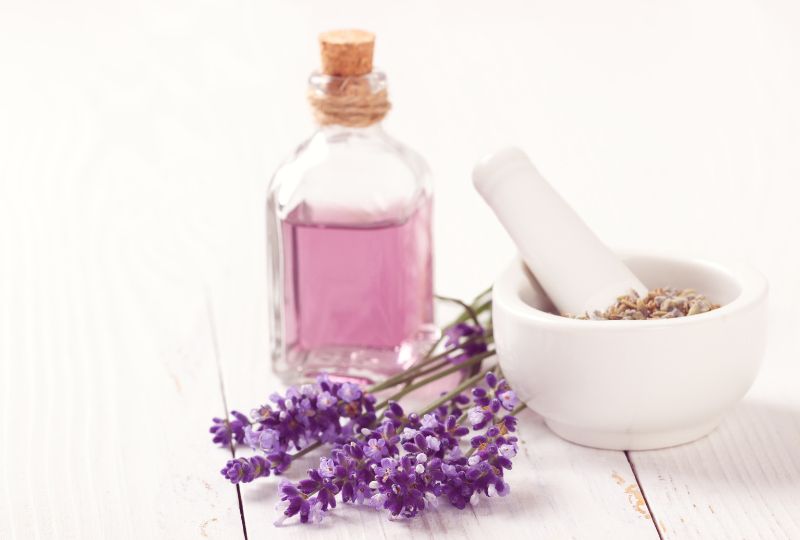Aromatherapy is a natural and effective way to reduce stress, improve mood, and promote relaxation. Essential oils, derived from plants, have been used for centuries to calm the mind, balance emotions, and create a peaceful atmosphere.
Whether you’re dealing with work stress, anxiety, or difficulty sleeping, aromatherapy can help you feel more relaxed and refreshed.
In this guide, you’ll learn how to use aromatherapy for relaxation and stress relief, the best essential oils to use, and different ways to incorporate them into your daily routine.
Why Aromatherapy Helps with Stress and Relaxation
✅ Activates the brain’s limbic system → Affects emotions, memory, and relaxation.
✅ Reduces cortisol levels → Lowers the body’s primary stress hormone.
✅ Encourages deep breathing → Helps slow the heart rate and calm the nervous system.
✅ Promotes better sleep → Certain scents help the body prepare for restful sleep.
✅ Creates a calming environment → Helps shift the mind away from stress.
Now, let’s explore the best essential oils for relaxation and how to use them effectively.
Best Essential Oils for Relaxation and Stress Relief
🌿 Lavender → Calms the nervous system, reduces anxiety, and improves sleep.
🍊 Bergamot → Uplifts mood and relieves tension.
🌹 Rose → Eases emotional stress and promotes inner peace.
🌲 Cedarwood → Grounds emotions and promotes deep relaxation.
🌱 Chamomile → Soothes nerves and encourages restful sleep.
🍋 Lemon → Refreshes the mind and reduces stress.
🪵 Sandalwood → Creates a sense of warmth and tranquility.
How to Use Aromatherapy for Relaxation
1. Diffuse Essential Oils in Your Space
Using an essential oil diffuser helps create a calming atmosphere.
✅ How to Do It:
- Add 5–10 drops of essential oil to a diffuser with water.
- Let the scent fill the room for 20–30 minutes.
- Use lavender or cedarwood before bed for better sleep.
✅ Why It Works: Helps shift your mood and reduce stress instantly.
2. Add Essential Oils to a Relaxing Bath
A warm bath with essential oils relaxes muscles and calms the mind.
✅ How to Do It:
- Mix 5–8 drops of essential oil with Epsom salt or a carrier oil.
- Add to warm bathwater and soak for 15–20 minutes.
- Use chamomile, rose, or lavender for deep relaxation.
✅ Why It Works: The combination of warm water and aromatherapy melts away stress.
3. Use Essential Oils for Deep Breathing Exercises
Breathing in essential oils enhances relaxation and mindfulness.
✅ How to Do It:
- Place 1–2 drops of oil in your palms, rub them together, and cup your hands over your nose.
- Inhale deeply for 4 seconds, hold for 4 seconds, and exhale slowly.
- Use lemon or bergamot for an uplifting effect.
✅ Why It Works: Encourages deeper breathing and instant relaxation.
4. Apply to Pressure Points for Instant Calm
Essential oils can be applied directly to the skin for a calming effect (when diluted).
✅ How to Do It:
- Mix 2–3 drops of essential oil with a carrier oil (like coconut or almond oil).
- Apply to wrists, temples, neck, or behind ears.
- Use sandalwood or rose for emotional balance.
✅ Why It Works: The skin absorbs essential oils quickly, helping you feel calm faster.
5. Create a Relaxing Pillow Spray for Better Sleep
Aromatherapy can help improve sleep quality and relaxation before bed.
✅ How to Do It:
- Mix 10 drops of lavender essential oil with ½ cup water in a spray bottle.
- Lightly mist your pillow and bedsheets before sleep.
- Combine with a diffuser for maximum relaxation.
✅ Why It Works: Helps signal to the brain that it’s time to relax.
6. Massage with Essential Oils to Release Tension
Aromatherapy massages relieve physical and mental stress.
✅ How to Do It:
- Mix 5–6 drops of essential oil with 1 tablespoon of carrier oil.
- Massage into shoulders, neck, or feet before bed.
- Use chamomile or cedarwood for muscle relaxation.
✅ Why It Works: Helps reduce muscle tension and promote deep relaxation.
7. Use Aromatherapy While Meditating or Journaling
Pairing essential oils with meditation enhances focus and emotional release.
✅ How to Do It:
- Diffuse sandalwood, rose, or frankincense during meditation.
- Apply a drop of oil to your wrists before journaling.
- Inhale deeply to center yourself and clear your mind.
✅ Why It Works: Helps enhance mindfulness and inner peace.
How to Make Aromatherapy a Daily Habit
🔹 Start small → Use aromatherapy for 5 minutes a day to build a habit.
🔹 Keep oils nearby → Have a small bottle in your workspace or bedside table.
🔹 Experiment with blends → Try combining lavender and lemon for balance.
🔹 Use aromatherapy with other self-care routines → Pair it with baths, yoga, or deep breathing.
Final Thoughts
Aromatherapy is a simple and natural way to reduce stress, improve relaxation, and boost emotional well-being. Whether you diffuse oils, apply them to your skin, or add them to your bath, small doses of aromatherapy can make a big difference in your daily stress levels.
Which essential oil will you try first for relaxation? 😊
